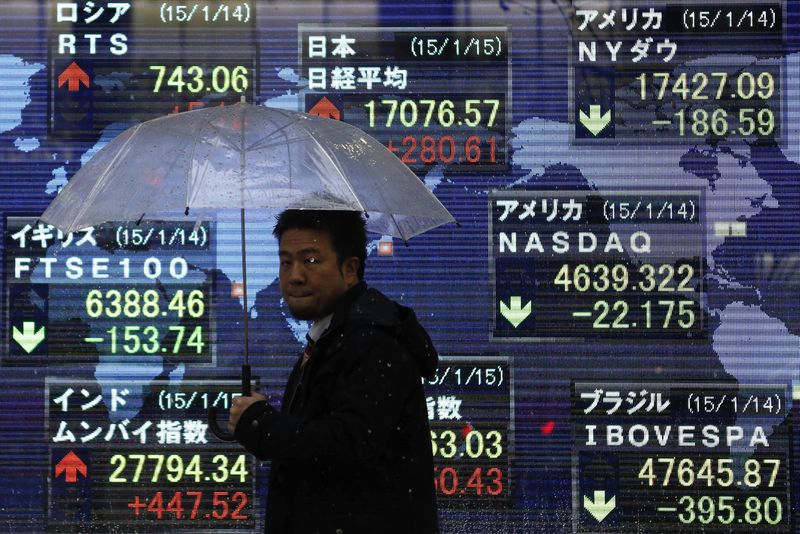By Gina Lee
Investing.com – Asia Pacific stocks were mostly down Wednesday morning, bracing for their first monthly loss since October 2018. Bond yields pushed upwards, and investors awaited more details on the next U.S. stimulus measure.
China’s Shanghai Composite fell 0.78% by 11:23 PM ET (3:23 AM GMT) and the Shenzhen Component slid 1.42%. Data released earlier in the day said that the manufacturing Purchasing Managers' Index (PMI) for March was 51.9, outperforming both the 51 in forecasts prepared by Investing.com and February’s 50.6 reading. The non-manufacturing PMI also surpassed its February reading of 51.4 with a 56.3 reading in March.
The Caixin manufacturing and services PMIs for the private sector are due later in the week.
Hong Kong’s Hang Seng Index was down 0.43%.
Japan’s Nikkei 225 fell 0.60%. Banks dragged Japanese shares lower after Mitsubishi UFJ (NYSE:MUFG) Financial Group Inc. (T:8306) joined Nomura Holdings Inc. (T:8604) and Credit Suisse Group (NYSE:CS) in a group of banks taking a hit from the collapse of Archegos Capital Management.
South Korea’s KOSPI inched up 0.09%.
In Australia, the ASX 200 jumped 1.58%. Residents in the state of Queensland await a decision on whether to lift the three-day snap lockdown imposed earlier in the week ahead of the Easter holiday.
Some investors remained optimistic, however.
“We believe that the equity market rally and cyclical rotation have room to run as improving economic expectations make their way to reality via earnings growth,” Lauren Goodwin, portfolio strategist at New York Life Investments, said in a note.
Investors continue to monitor the pace of the U.S. economic recovery from COVID-19, as well as any signs of inflation, as concerns that bond yields renewing their gains could impact some stocks. Benchmark 10-year Treasury yields gained as the Asian session opened but were subsiding from the 14-month high of 1.77% touched during the previous session.
U.S. President Joe Biden is expected to outline later in the day how he plans to fund a $3 to $4 trillion infrastructure plan.
Positive economic data also gave investor sentiment a boost. Tuesday’s Conference Board CB Consumer Confidence Index climbed to 109.7 in March, its highest level since the beginning of COVID-19. Forecasts prepared by Investing.com predicted a 96.9 figure, while the index was at 90.4 in February.
Investors now await the U.S. employment report for March, including non-farm payrolls, which is due out on Friday. With the Federal Reserve citing a lackluster labor market to justify its continued dovish stance on interest rates, inflation worries continue to persist even as the stance has boosted the economic outlook, it also continues to raise inflation worries.
The International Monetary Fund will also upgrade its forecast for global economic growth in the following week.
